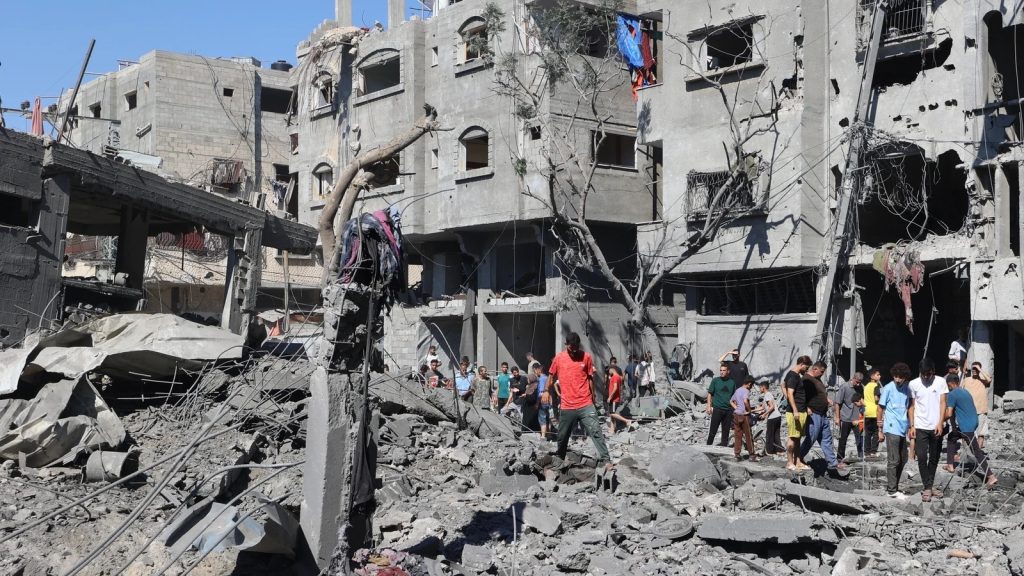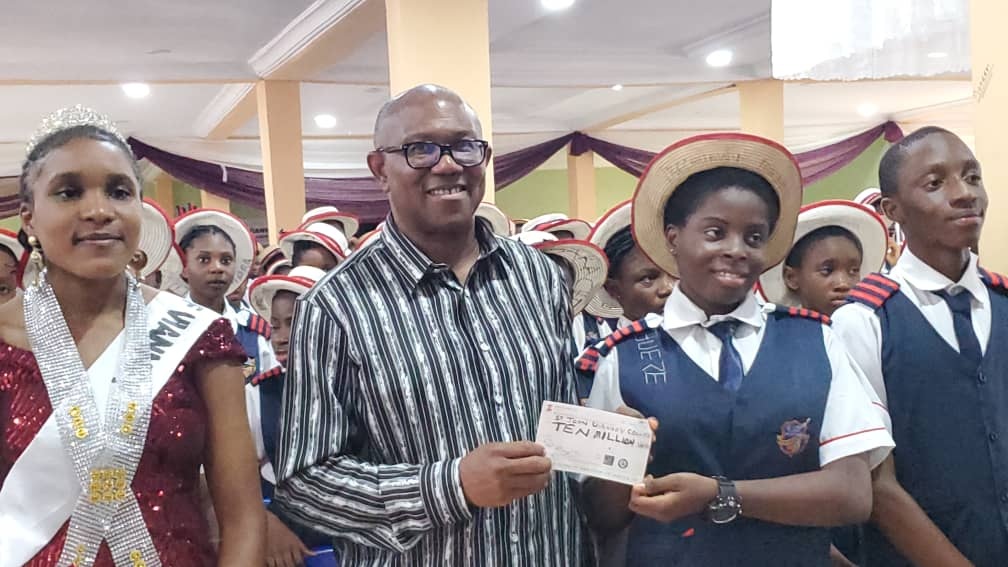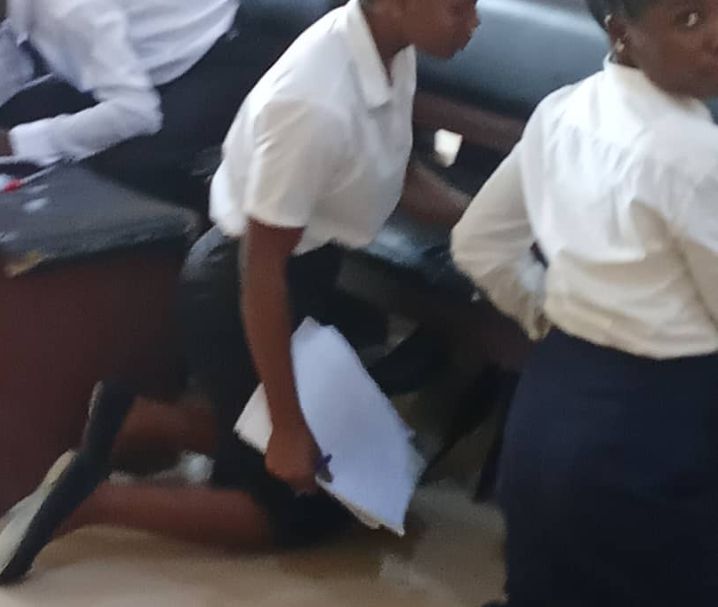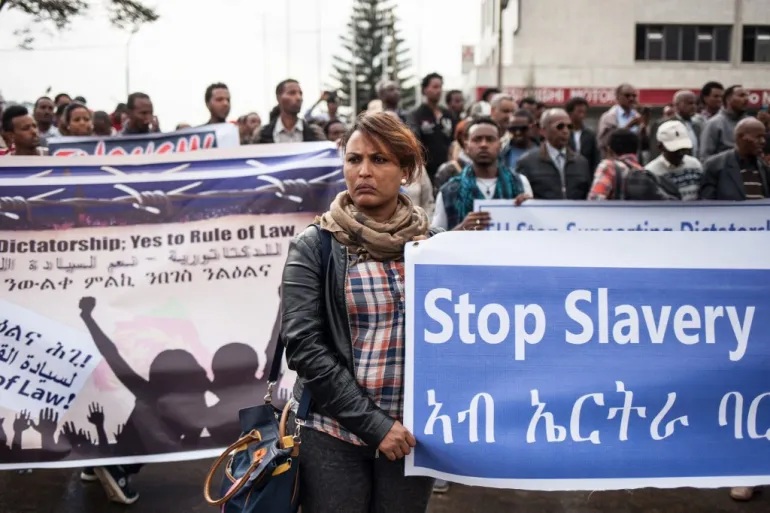News
Whispers in the Walls: Pakistan’s Forgotten Building Crumbles into Tragedy
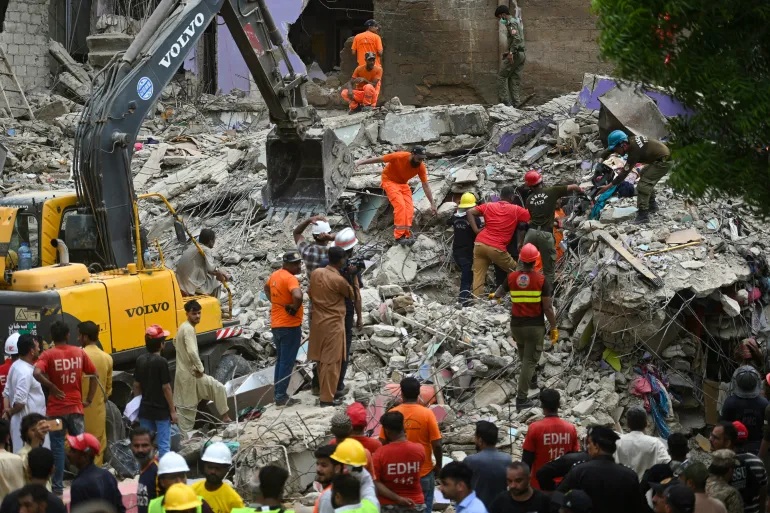
In a devastating incident that underscores Pakistan’s ongoing infrastructure challenges, a five-storey residential building in Karachi’s Lyari neighborhood collapsed on the morning of Friday, July 4, 2025, killing at least eight people and injuring nine others.
Authorities fear the toll may rise as search and rescue teams continue digging through the debris in hopes of finding more survivors.
The collapse occurred shortly after 10 a.m. local time (05:00 GMT).
It sent shockwaves through the densely populated and economically disadvantaged Lyari area, a neighborhood historically known for its struggles with poverty and gang-related violence.
According to senior police officer Arif Aziz, the building had housed up to 100 residents at the time of the collapse.
Among the survivors is 30-year-old Shankar Kamho, who narrowly escaped tragedy thanks to a timely warning from his wife.
“She called and said the building was cracking,” he recounted.
“I told her to get out immediately.”
His wife, displaying remarkable courage, alerted neighbors as well.
However, not everyone heeded the warning.
“One woman told her, ‘This building will stand for at least 10 more years.’
“Still, my wife left with our daughter.
“Twenty minutes later, the building was gone,” Kamho told AFP.
Emergency responders, including volunteers from the Edhi Foundation, have been working tirelessly despite challenging conditions.
Narrow streets surrounding the building have hampered the movement of heavy rescue equipment, complicating efforts to clear debris and reach those possibly still trapped beneath the rubble.
Television footage broadcast nationwide showed rescue teams carefully evacuating nearby buildings to prevent further casualties in case of additional structural failures.
Saad Edhi, a key figure in the ongoing rescue effort, described the scene as grim.
“It’s a worn-out building. We believe there could be at least eight to ten more people still trapped,” he said.
The structure’s weakened state and the precariousness of surrounding buildings have added urgency to the operation.
Heart-wrenching stories continue to emerge from the disaster.
Jumho Maheshwari, a 70-year-old resident, left for work early that morning while his entire family remained inside their first-floor flat.
“Nothing is left for me now,” he said tearfully.
“My whole family is inside.
“All I can do is pray for a miracle.”
This tragic incident is, unfortunately, not isolated.
Building collapses in Pakistan have become alarmingly frequent, often due to systemic neglect, poor urban planning, and substandard construction practices.
Safety regulations are either outdated or unenforced, and builders frequently cut corners by using low-grade materials to reduce costs.
Karachi, a sprawling metropolis of more than 20 million people, is particularly vulnerable due to its overcrowded urban centers, aging infrastructure, and widespread unauthorized construction.
The Lyari disaster echoes a similar collapse from June 2020, when an apartment block in Karachi crumbled, killing 22 people.
Despite that tragedy and public outcry, little appears to have changed in terms of regulatory enforcement or improving building safety standards.
Experts say urgent reforms are needed.
Improved urban planning, stricter enforcement of building codes, and transparent accountability for illegal construction practices are critical to prevent such avoidable disasters.
Human lives continue to be lost because of institutional failure and lack of political will to enforce basic safety standards.
As rescue operations continue, families wait in anguish for news of their loved ones.
The collapse has once again laid bare the dire need for systemic change in Pakistan’s construction sector, a need that grows more urgent with each tragedy.
For the survivors and the families of the victims, the aftermath is one of loss, frustration, and a call for justice.
But for the broader global community, this disaster serves as a stark reminder of the human cost of negligence and inequality in rapidly growing urban centers.
For Diaspora Digital Media Updates click on Whatsapp, or Telegram. For eyewitness accounts/ reports/ articles, write to: citizenreports@diasporadigitalmedia.com. Follow us on X (Fomerly Twitter) or Facebook




